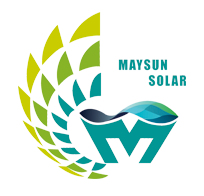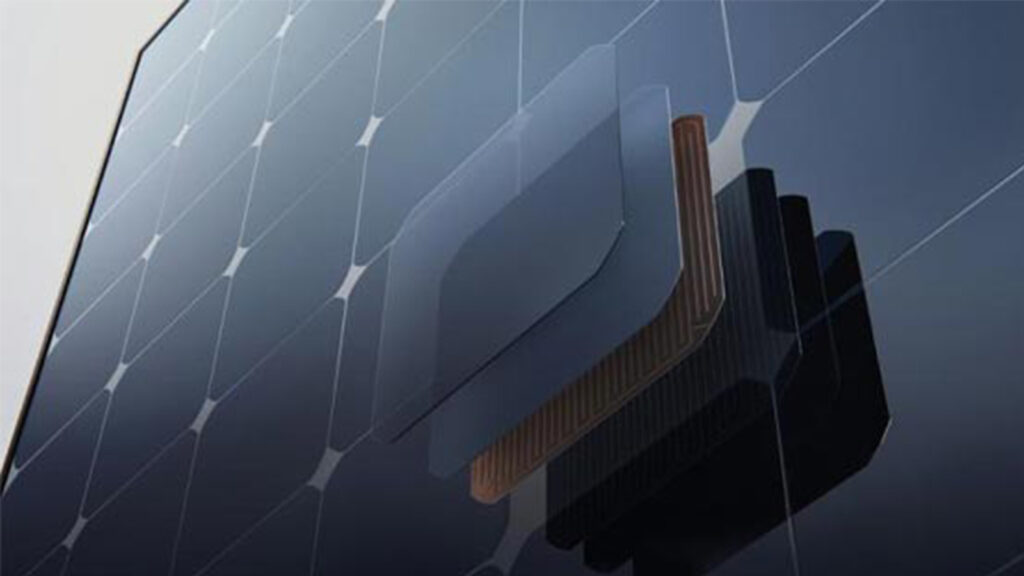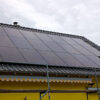People are paying a lot of attention to the search for sustainable alternate energy sources. Solar energy has become the frontrunner in the fight against climate change. Through constant research and development, the solar industry has made big leaps forward. One of these is Interdigitated Back Contact (IBC) technology, which has changed the way solar panels work. IBC solar cell technology is one of the most difficult ways to make solar panels today. IBC cells are a great choice for making solar power because they are more efficient and have many other benefits.
Table of Contents
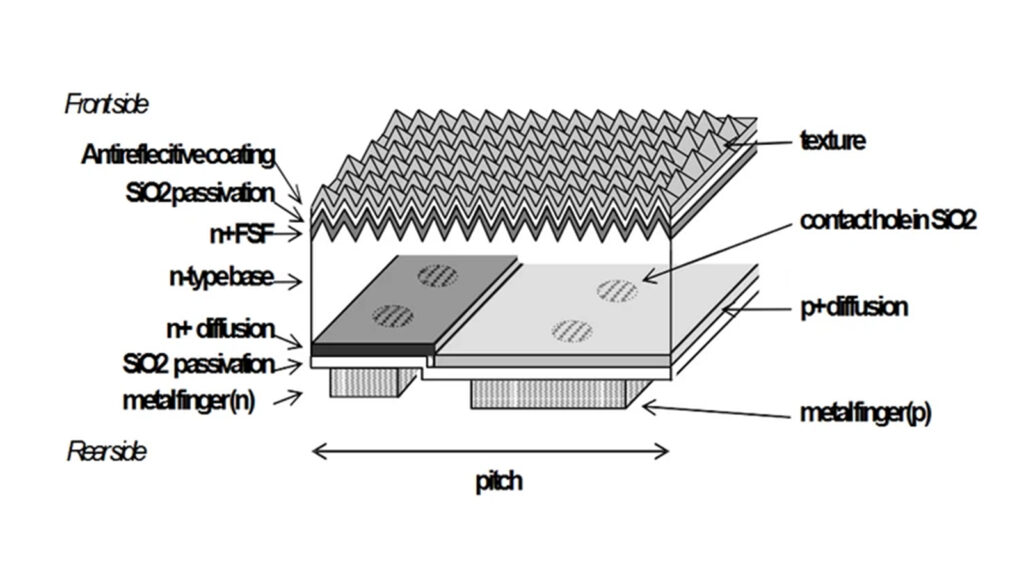
What is IBC solar cell technology?
IBC, the full name of Interdigitated Back Bontact, is a new type of solar panel technology. The most notable feature of the IBC solar cell is that the PN junction and metal contact are located on the back of the solar cell, avoiding the shielding of the front metal grid electrode.
It can enhance the utilization rate of incident light, reduce light loss, and have a large short-circuit current. At the same time, optimized metal gate electrodes are used on the back to reduce series resistance.
Usually, a double-layer SiNx/SiOx film is used on the front surface, which not only has anti-reflection properties, but also has an excellent passivation effect on the textured silicon surface. Among commercial crystalline silicon batteries, IBC batteries have the most complex process and the highest structural design requirements.
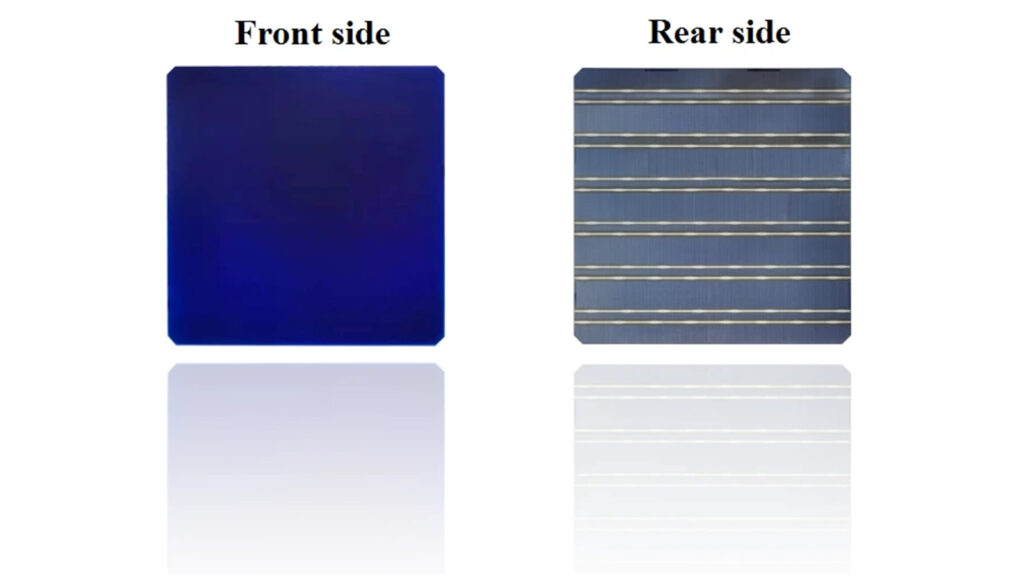
How does IBC solar cell technology work?
Although IBC solar cells are one of the most complex technologies used to manufacture solar panels, the efficiency figures they provide cannot be ignored. Energy conversion in conventional solar cells is achieved by incorporating front contacts into the cell.
To generate electricity, photons must be absorbed immediately after hitting the cell’s surface. If not absorbed, they are either transmitted or reflected. This is a loss of light energy.
However, the concept of IBC cells is different. The contacts are moved to the back of the cell instead of the front, which improves efficiency because less light is blocked from entering the cell through the front, and electrons generated from absorbed photons can still be collected through the rear. Due to their higher efficiency and other advantages, IBC cells should not be overlooked.
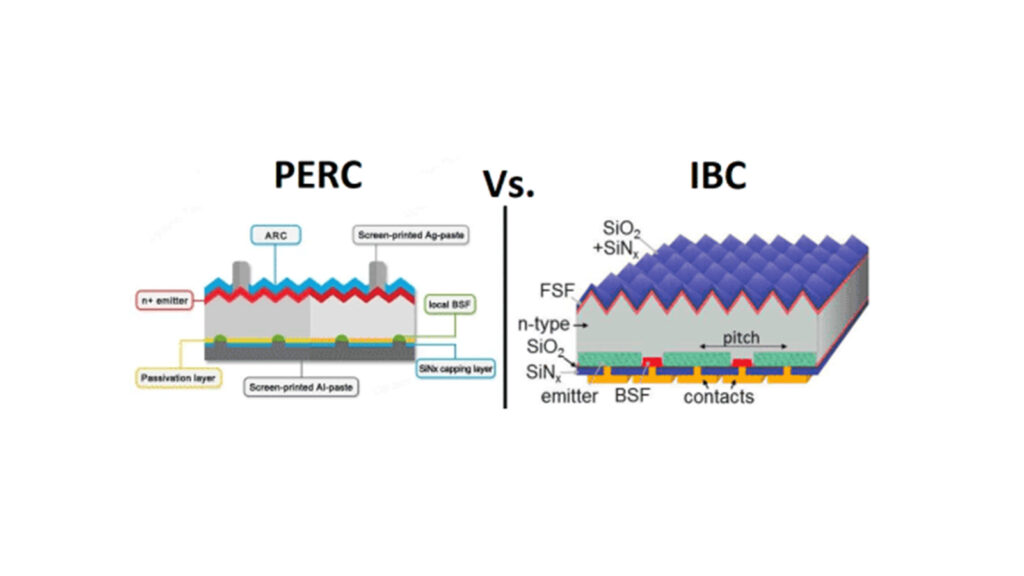
Comparison of IBC solar cell technology and PERC technology
Both technologies have higher efficiency, better temperature coefficient, and larger photon absorption area. Both PERC and IBC technologies offer similar benefits by reducing the surface area occupied by the bus bars or metal contacts. PERC technology only reduces the busbar, while IBC solar panel technology eliminates it, further increasing the effective surface area for photon absorption.
1.IBC solar panels have higher efficiency and power output
IBC technology outperforms PERC technology in terms of efficiency, as PERC technology achieved only 25.4% efficiency, while IBC solar panel technology achieved a record efficiency of 26.7%. By eliminating the front metal contacts that tend to block sunlight, IBC panels maximize the effective surface area of the solar cells. The electrical contacts of the IBC panels are located on the back to capture more sunlight and convert it into electricity efficiently.
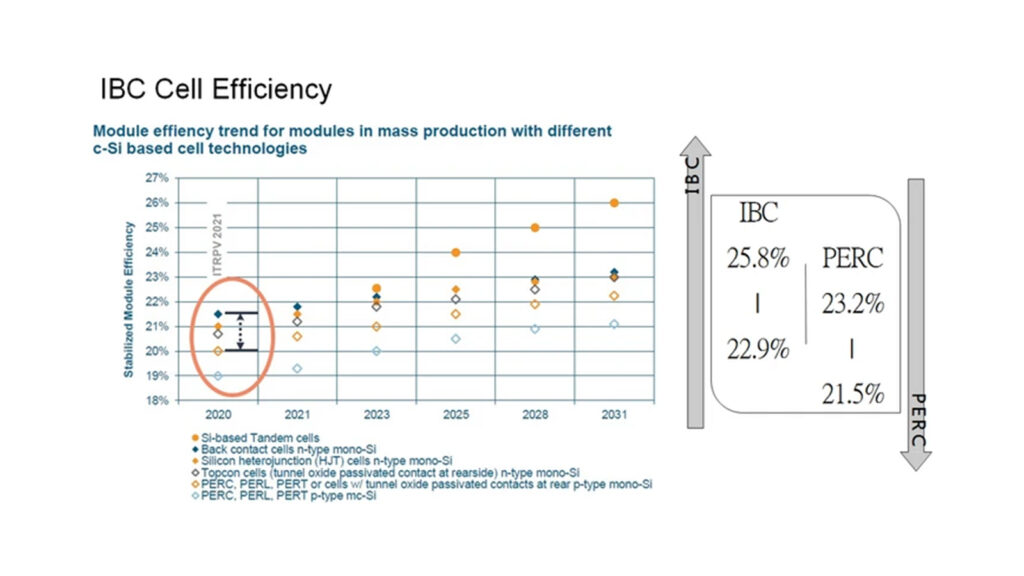
This breakthrough configuration ensures higher energy production, allowing IBC panels to deliver enhanced power output even in low light conditions. As a result, IBC technology sets a new benchmark for solar panel efficiency, making it an irresistible choice for residential and commercial installations.
2. IBC solar panels are more durable and reliable
IBC technology also increases the durability and reliability of solar panels to a higher level than PERC technology. The back contact protects the solar cell from environmental factors such as moisture and heat, preventing performance degradation over time, and IBC solar panels operate cooler than conventional panels, making them more suitable for hot summer days . Additionally, IBC panels reduce the risk of Potential Induced Degradation (PID), a phenomenon that reduces the output of conventional solar panels. By minimizing the influence of external factors, IBC technology ensures optimal efficiency and reliability of solar panels over a long lifetime.
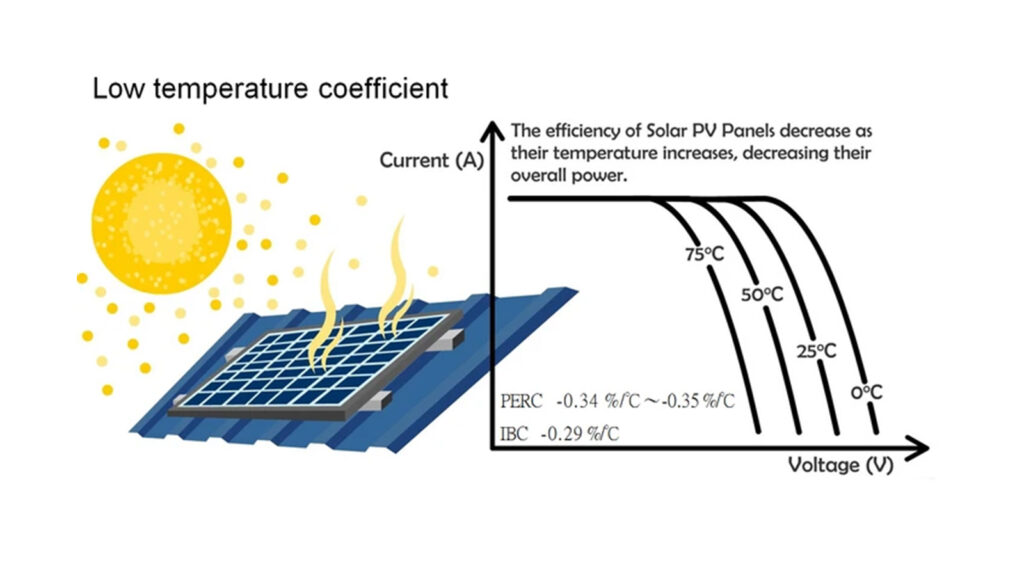
3. IBC solar panels have better appearance
With IBC technology, beauty and performance go hand in hand. Unlike PERC panels, IBC panels have no front metal contacts for an elegant and sleek look. This feature is especially beneficial for residential and architectural projects where solar panels need to fit seamlessly into the overall design. IBC panels can be easily customized to fit a variety of shapes and sizes, allowing users to choose solar with confidence without compromising the visual integrity of their structures.
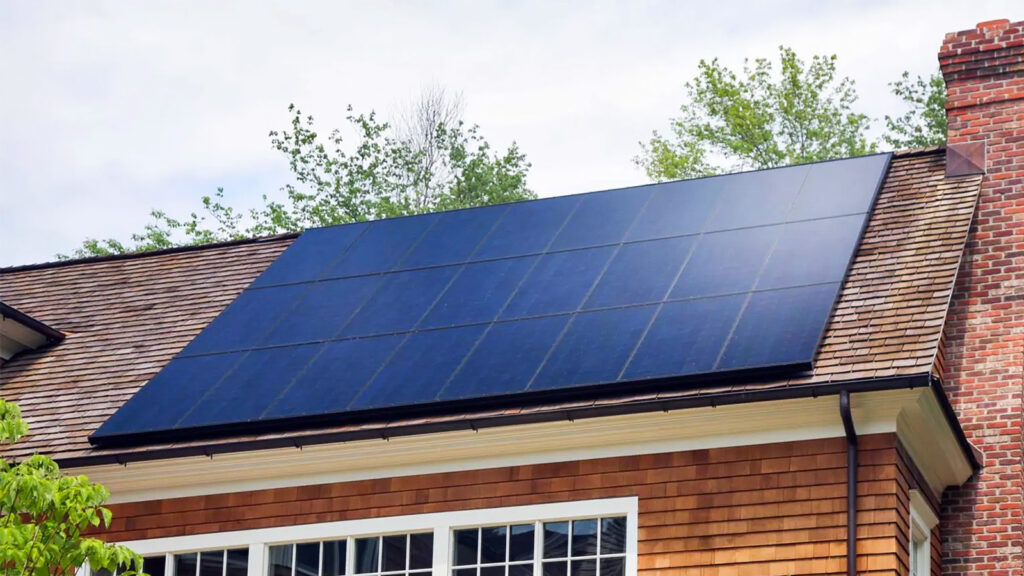
What application scenarios are IBC technology suitable for?
IBC technology has huge untapped potential in various solar energy applications. IBC panels are versatile enough to suit a variety of applications, including rooftop installations, solar farms, and portable balcony photovoltaic systems, among others. The effectiveness and flexibility of IBC technology make it ideal for use in places where space is limited and power generation needs are high.
With Interdigitated Back Contact (IBC) technology, solar panels are entering a new age. IBC solar panels are changing the way we use the sun’s energy by making it work better, looking better, and being more reliable. As technology keeps getting better, solar energy is becoming more and more important for meeting our energy needs and reducing the damage that other energy sources do to the world. The use of IBC technology also gives us an easier and more efficient way to make solar power.
Since 2008, Maysun Solar has been specializing in the production of various photovoltaic modules, and we provide a series of solar panels using various advanced technologies for you to choose from.
Choose Maysun Solar, because we have high-quality solar panel technology to meet your needs, please contact us, and create a green future together!

How Businesses Can Offset Carbon Taxes with Solar Power
This article analyzes the latest carbon tax policies and photovoltaic deduction strategies, helping European businesses legally reduce taxes, increase profits through solar investment, and achieve a win-win situation for both economy and environment.

Forecast and Response: Seizing the Next Decade’s Growth Dividend in Europe’s Commercial and Industrial Photovoltaics Market
Maysun Solar analyzes the growth trends of commercial and industrial photovoltaics in Europe over the next ten years, from policies and ESG to technological innovation, helping companies seize the initiative in the energy transition.

How to Calculate Solar System ROI and Optimize Long-Term Returns?
Solar power is becoming a key solution for businesses to reduce costs and improve efficiency. Accurately calculating ROI and optimizing long-term returns are essential to maximizing investment value.

Will Agrivoltaics Affect Crop Growth?
Agrivoltaics combines solar energy and agriculture to reduce up to 700 tons of CO₂ per MW, improve water use, and boost crop growth for sustainable farming.

6.5 Billion Loss Hits Photovoltaics: Reshaping or Elimination?
In 2025, the photovoltaic market may see a turnaround as some companies take early action. A €6.5 billion loss is driving businesses to explore new growth areas like energy storage and hydrogen. Which giants will break through? Industry transformation is accelerating!

What’s New in Solar Energy (March 2025)
March’s solar news highlights include rooftop solar meeting two-thirds of global demand, China’s market reforms potentially boosting solar demand and module prices, France revising solar targets in PPE 3, and challenges in Europe with declining capture rates and price volatility.
